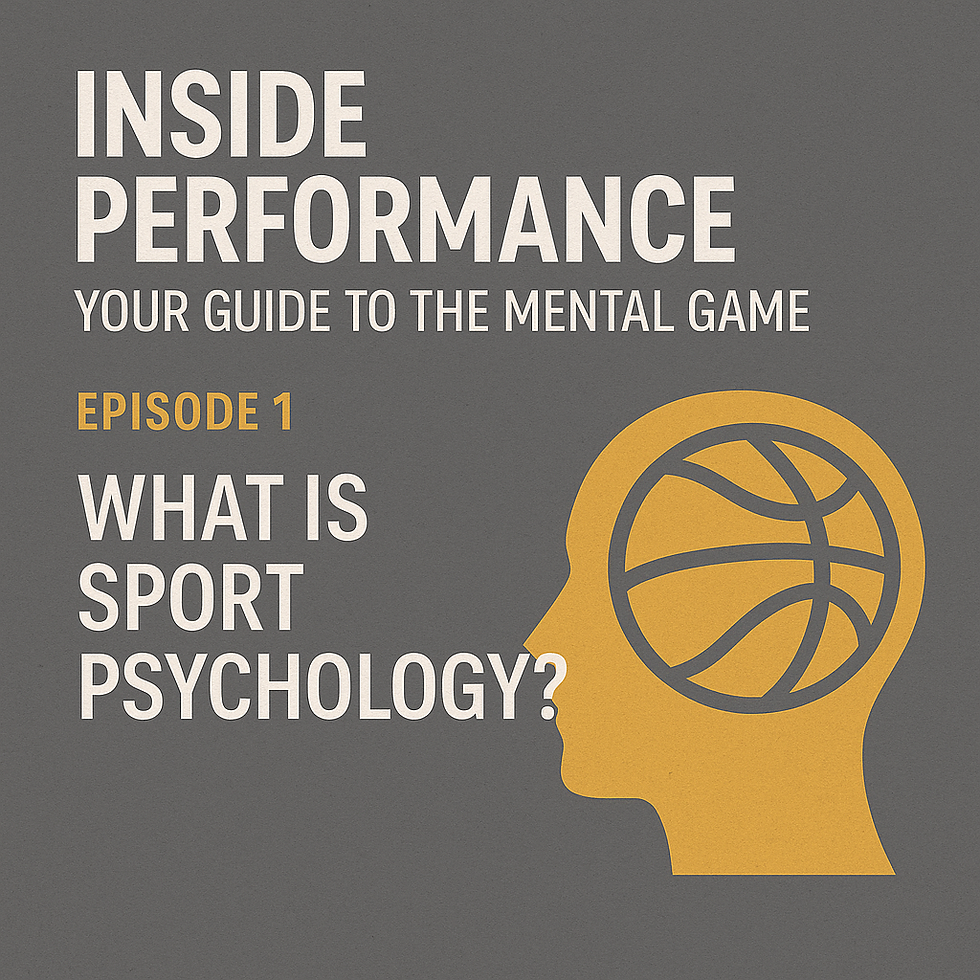The role of parents in youth athlete development.
- Dylan Rodgers
- Feb 22, 2023
- 3 min read
I'm sure we have all heard the stories of the parent on the sideline, shouting out inappropriate comments at the top of their voice towards their child, teammates, coaches, referee, the other team, or even other parents. How much of an impact does this sort of behavior have on the development of youth athletes? What role do parents actually play in sporting development?

It's not all doom and gloom
There has been a lot of negative press regarding the role and influence parents have on youth sports. One national survey on junior tennis found that 3 of 10 parents do things that interfere with their child's development. It is not all doom and gloom as there has been a wide range of research conducted around this topic to help identify how parents can positively influence the sporting development of youth athletes. A study conducted by McCarthy, Jones and Clark-Carter (2008) looked to identify sources of enjoyment from youth sports participants. Positive parental involvement was one of the most frequently reported sources by young female and male athletes. This just shows that a youth athlete's perception of parental involvement significantly impacts their enjoyment of that sport.
What impact does positive parental involvement have?
Positive parental involvement can support the development of important skills such as social skills, motivation, and self-esteem. These skills that are learned in sport are transferable to other domains in life, such as school and careers. This transfer of skills is most effective when the youth athlete has greater self-awareness. Parents can positively assist in the development of self-awareness and encourage their children to think about the skills they are developing in sports.
The importance of parental involvement is evident in elite sports, such as football academies. These settings primarily focus on developing players to reach the elite level of sport. A study conducted by Mills, Butt, Maynard and Harwood (2012) identified factors influencing development in elite youth academy football players. All participants noted that parents have one of the most significant roles in academy player development.Some coaches even mentioned that there was a positive correlation between parental support and progression to the professional level.
What does positive parental involvement look like?
Positive parental involvement was characterised by parents not becoming overly involved with their child's development and providing tangible and emotional support. Below are some do's and don'ts regarding parental involvement in sport:
Do
Provide tangible and emotional support. Reassuring your child that you are always there when they need you will show them you are there for support when needed.
Encourage the development of your child's self-awareness of the skills they are developing. This can support the transfer of skills to other aspects of life.
Trust the coach's methods and suggestions. If the messages being portrayed by the coach and parent are the same, the likelihood of the child becoming confused is decreased which enables them to focus on working towards their goals.
Don't
Put too much pressure on and emphasize winning and success. A strict focus on winning can be detrimental to performance and take away from the child's enjoyment of that sport. Children need to learn that development is the focus and understand how to deal with failure.
Be over-involved. This is a tough one as it may be your way of showing you care, however, there is a fine line between supporting your child and becoming over-involved.
Provide incongruent coaching advice. This could lead to conflicting messages being received from both coach and parent, causing confusion to appear within the child. If you don't agree with the coach's messages, have a quiet discussion with them.
Top Tips
Be a positive role model
Keep things in perspective
Focus on the process, not the outcome
Let your child take risks without fear
Avoid comparisons with other children
Do not fuel your child's ego
Be wary of the car journey home
Enjoy the experience
As a sport psychologist, I have worked with many parents to support their child's development. Ultimately, parent education is vital to ensure they have the knowledge and understanding. A lot of the time parents just want the best for their children and haven't had any education on how to support their children during sporting development. Sport Psychologists focus on this particular aspect in their work with youth development, ensuring parents have the proper education via workshops and a safe space to ask questions on how to best support their child.



Comments